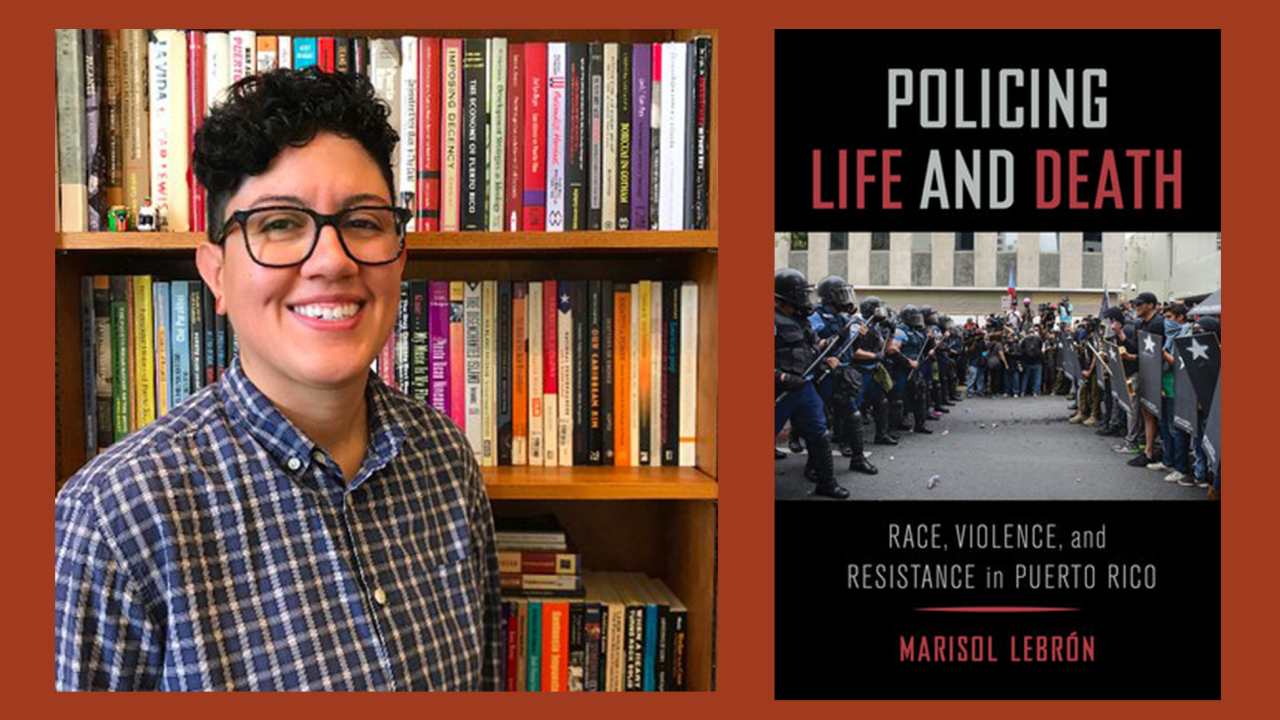
Marisol LeBrón on Women's Rage as Decolonial Strategy in Puerto Rico
At an event sponsored by the UC Davis-Puerto Rico Initiative, Professor Marisol LeBrón demonstrated how feminist interventions can affect how we can think about carcerality and resistance in Puerto Rico.
In “Toward a Decolonial Feminist Politics of Rage in Puerto Rico,” LeBrón showed that while it is socially acceptable for rage to be expressed by men, different conditions apply for women. Women, LeBrón explained, “are not understood to have that same right to anger.” In Puerto Rico, women’s rage has been powerfully mobilized spatially and affectively. Coraje can thus be understood as a weapon of the weak that makes state violence visible — and part of an answer to the question, “What is the way in which women’s rage is tapping into an anti-austerity, anti-colonial politics?”
“Following [Hurricane Maria], an entire culture industry sprang into action… hoping to shift… away from despair” and to a “can-do resilience,” explained LeBrón. This “reluctance to dwell in negative affect” did not reflect the government’s responsibilities leading up to or following the storm, and embodies the concept of cruel optimism. “In many ways, the emotional response that seems most appropriate” given the conditions Puerto Ricans are experiencing, LeBrón continued, is “to mobilize rage… to struggle for freedom and justice.” This mobilized rage can be summed up in the term coraje, which in Spanish has two meanings: courage and anger. This word captures understandings of rage, especially as put forth by Black feminists bell hooks and Audre Lorde. Of course, rage’s radical potential also makes it a target for state repression, often from police, and often taken out on women.
Women have been most affected by the austerity that has created the devastating effects of Hurricane Maria and other storms. Women have thus become leaders in anti-austerity and anti-colonial organizing, and, “tellingly, women have overwhelmingly become the face of this political repression.” The state, as LeBrón explained, has not only been targeting the left. It is concerned with women’s abilities to mobilize coraje, forming solidarities, to motivate change “to remake their very world.”
LeBrón articulated four different—yet not dissimilar—instances of coraje in action.
-
On May Day in 2017, the first May Day after PROMESA was installed, Nina Droz alone was arrested and charged with federal crimes during marches that converged in the heart of the banking industry. That Droz had never arrested for protest before and was not a member of any group meant she lacked access to a network willing to fight for her freedom. This illustrates Droz’ arrest as an example of “conservative, misogynistic signposting” in which a colonial apparatus shifts attention away from roles of local officials and misery and onto a tantalizing story of a dangerous, beautiful “seductive terrorist” woman.
-
During the event Enciende Tu Coraje, protestors burned three effigies pinpointing the source of coraje. Burning these effigies made real the violence of colonial functionaries and institutions; igniting them outward, LeBrón explained, could destroy them. At the action, police outnumbered protesters two to one and ran over poet Alejandro Medina with a flatbed truck before hitting protestors trying to aid him. This was a literal manifestation of being run over or steamrolled — atropellado — that encapsulates how how people feel politically.
-
After United States District Judge Laura Swain approved the Cofina Plan to restructure Puerto Rico’s debt under a forty-year plan largely benefiting Wall Street. Elimar Alicia Chardón Sierra, frustrated with what the approval of the plan meant for Puerto Ricans, left Judge Swain a voicemail expressing her frustration and including the sentiments, “I hope you die, bitch.” Chardón was subsequently arrested at her job teaching music in a clear tactic police have historically used in Puerto Rico to publicly intimidated and pressure people at their places of work. Chardón thought this indicated that authorities were still afraid of Puerto Ricans claiming their independence.
-
Marches demanding a radical restructuring of society following “RickyLeaks”—leaked chats from then-governor of Puerto Rico Ricardo Rosselló and his associates making fun of political opponents and women—made it clear that Puerto Ricans are committed to refusing “a governing logic that promotes death.” People took to the streets to demonstrate that calling women hysterical and saying that they’re making a big deal out of nothing and will go away if ignored was unacceptable in the biggest marches in Puerto Rico’s history, led overwhelmingly by women.
LeBrón emphasized how the affective—phenomena that without emotional components are otherwise hard to conceptualize—is useful for understanding what is going on in Puerto Rico and its diaspora. After all, she argued, hurricanes came to “wash away illusions” of progress and prosperity.
Marisol LeBrón is Assistant Professor of Mexican American and Latina/o Studies at the University of Texas, Austin and currently a Visiting Scholar in the Charles Warren Center for Studies in American History at Harvard University. Her first book, Policing Life and Death: Race, Violence, and Resistance in Puerto Rico, was published on University of California Press in April 2019, and she coedited, with Yarimar Bonilla, Aftershocks of Disaster: Puerto Rico Before and After the Storm.
